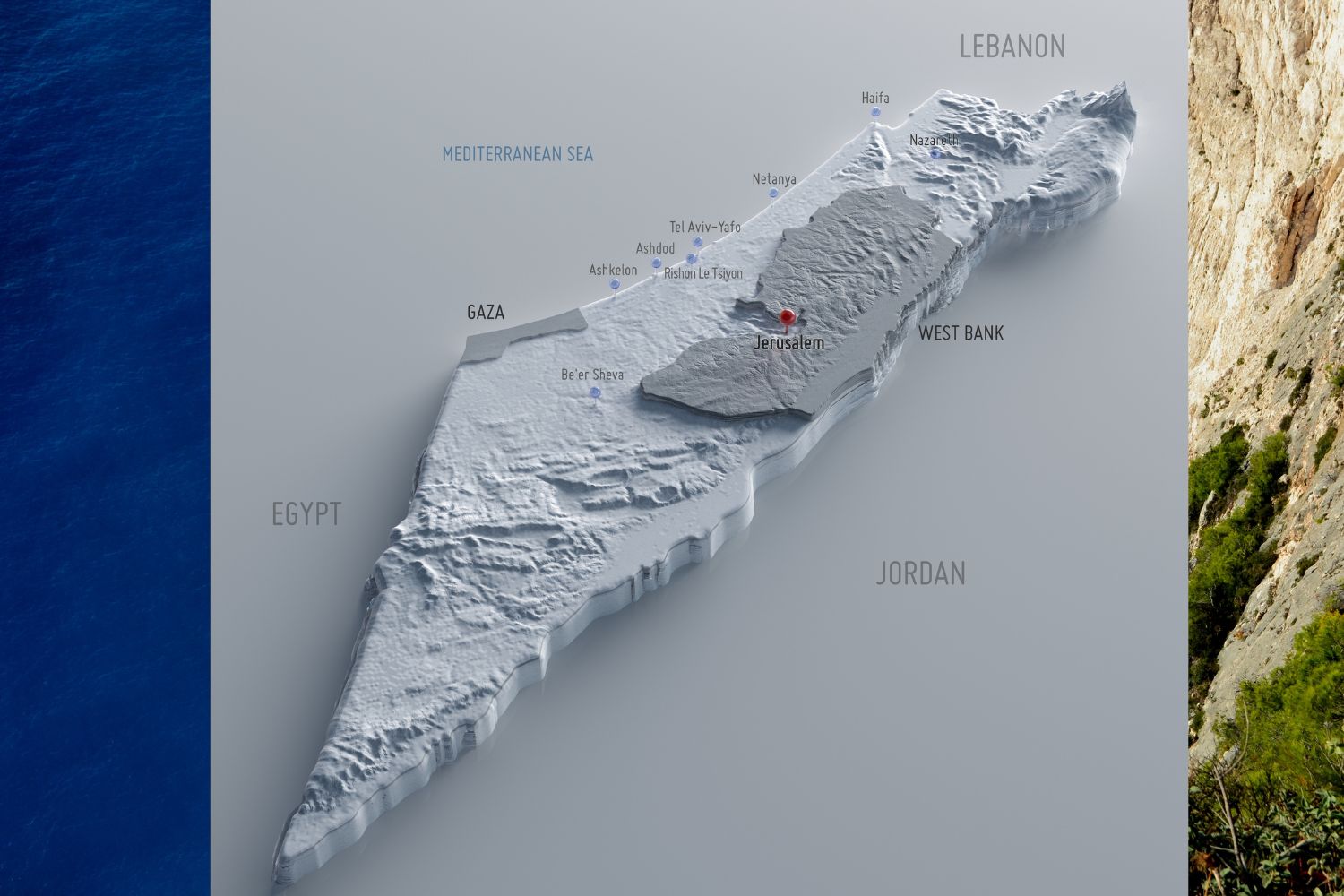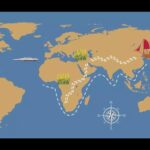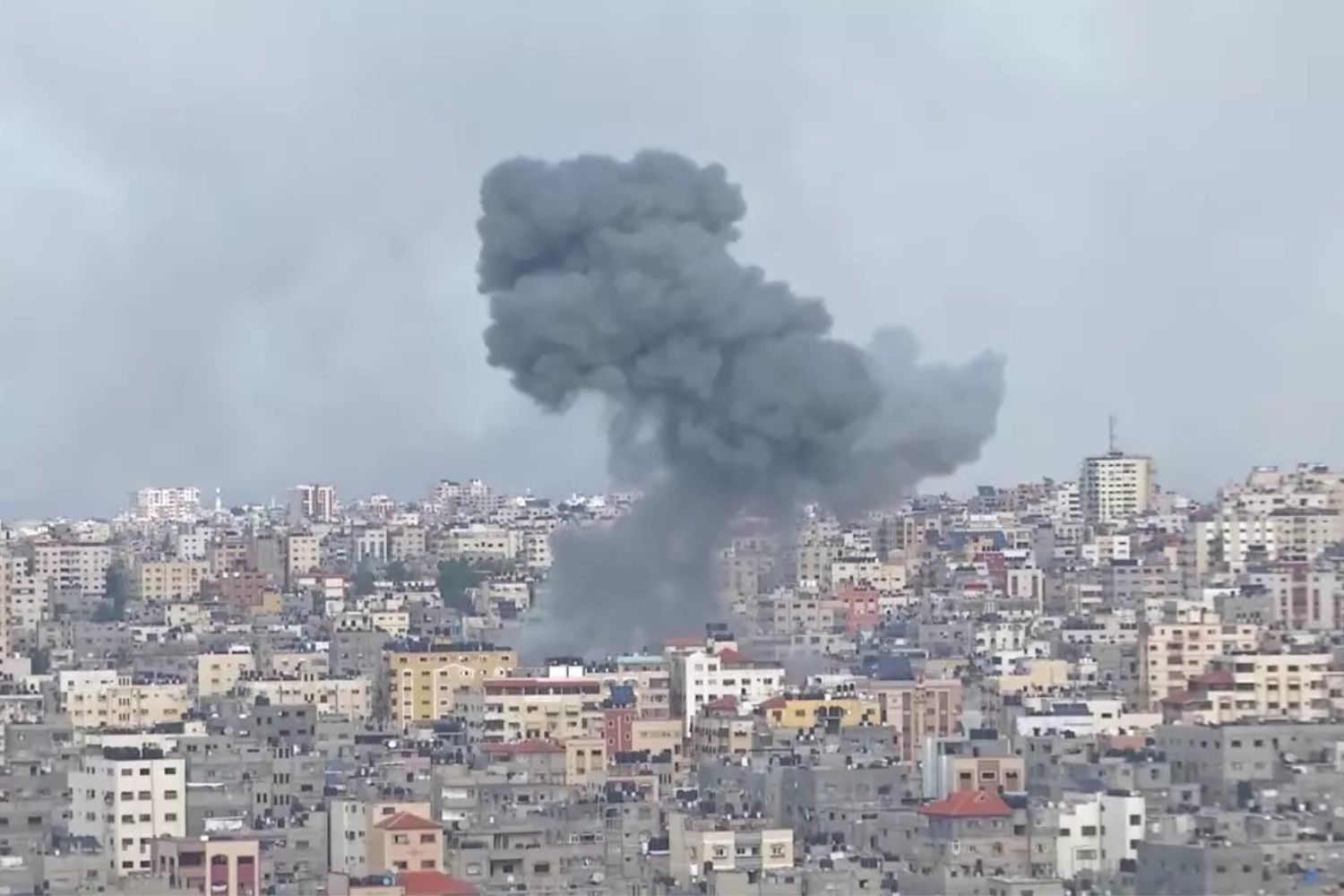Eyal Mayroz, University of Sydney
Israel: Notwithstanding a brief period of hope in the mid-1990s, successive Israeli governments have long held that the country’s security must inevitably rely on military might. But what may have worked in other places has not proven sustainable for the complex realities of the Israel-Palestine situation.
In the century-long feud between the two sides over land, there’s been little respite from violence. Competing territorial claims continue to fuel duelling narratives of victimisation. These foment anger, animosity, fear and mistrust. Colossal leadership errors on both sides during historical junctures have led to missed opportunities to resolve a conflict that becomes more intractable by the year.
On the Jewish Israeli side, deep-rooted existential fears, following millennia of persecution, pogroms and the trauma of the Holocaust, were later exacerbated by a number of mostly defensive wars fought against neighbouring Arab states.
From the 1960s, Israel’s desire for security was further challenged by continual terrorist attacks targeting its civilians. These experiences resulted in strong society-wide yearnings – to a level unfathomable by outsiders – for military supremacy as a means to ensure the country’s survival.
On the Palestinian side, experiences of dispossession, injustice, deprivation, daily humiliation, endless violations of rights and a sense of abandonment by the world – including by Arab states – have caused immeasurable despair.
Added to the tensions since the 1980s have been the steadily increasing influences of religious and radical nationalist ideologies on both sides of the fence. These developments have all but stymied hopes for a negotiated end to the conflict in the foreseeable future.
ALSO READ: Biden’s trip to Israel ties him and the US to any Gaza offensive
Palestinian despair
After decades of oppression, the sense of hopelessness among Palestinians has reached a peak, aggravated by the realities on the ground:
- a continued illegal expansion of Jewish settlements in the West Bank and fears of wholesale annexation of Palestinian lands
- worsening Jewish settler violence, aided at times, or not prevented by, Israel’s security forces
- a suffocating 16-year blockade of Gaza following Israel’s 2005 withdrawal from the strip, interspersed with bouts of violence between Israel and Hamas or Islamic Jihad, with civilians as the main victims
- diminishing prospects for an independent Palestinian state.
Consequently, 2023 has seen a significant rise in violent clashes between Israelis and Palestinians, mostly in the West Bank, but also in Gaza and inside Israel.
This was the situation on the eve of Hamas’ horrendous attack on southern Israel on October 7. The savage massacres of at least 1,400 Israeli civilians, including whole families, women, children, babies and the elderly – in addition to the kidnapping of an estimated 200 more civilians – shocked the world. It brought an instantaneous Israeli declaration of war against Hamas.
The first 11 days of Israeli bombardments of the Gaza Strip have left more than 3,000 Palestinians dead – mostly civilians. Many thousands have been wounded. These numbers will continue to grow with no end in sight to the terrible carnage.
Little empathy across fences
Israeli historian Yuval Noah Harari has noted that while nations can become at once victims and perpetrators of violence, such situations can be psychologically difficult to cope with.
Indeed, once we choose to support a side in a conflict, we may go to great lengths to defend its actions. New information, processed through our filters and conditioned responses, can be used to challenge, or cast doubt, on any claim made by the other side. The more emotionally invested we become in the cause, the harder it is for us to empathise with the suffering experienced across the fence.
Over the past days, heated debates and protests around the world have demonstrated this “empathy deficit” in action. On one side, many supporters of the pro-Palestinian camp, exasperated by the rapid increase in casualties and deteriorating conditions in Gaza, have seemed reluctant to extend empathy to Israeli victims.
Across the divide, traumatised supporters of Israel have reacted furiously to any attempt to draw lines or parallels between the Hamas attack and Israel’s mistreatment of Palestinians.
Saying ‘no’ to any violence against civilians
Free Palestine supporters have often been reluctant in the past to publicly criticise Hamas. For those who live in the occupied territories, fear may have been a factor. Another possible reason could have been the belief that disparaging groups like Hamas would undermine the cohesiveness and solidarity of their camp, and thus, play into the hands of Israel.
A question for the Palestinians to ask themselves, though, is whether the campaign is inflicting greater damage on its cause, both morally and practically, by not distancing itself more categorically from violent groups, like Hamas and Islamic Jihad, who target civilians. This question seems all the more relevant in the aftermath of October 7 and the current situation in Gaza.
By provoking Israel and retreating to hide behind its own civilian population as human shields – with full knowledge of what Israel’s response would be – Hamas demonstrated a willingness to sacrifice thousands of Gazans in the hope of raising the world’s anger against Israel.
This highly immoral and cruel strategy seems to have worked only partially so far. A sharp increase in civilian casualties following an expected ground incursion by Israel, however, may lead to further shifts in international opinion.
ALSO READ: ‘Gaza is being strangled’: Why Israel’s evacuation order violates international law
Ending the occupation
Decades of Israeli occupation of the Palestinian territories, meanwhile, have inflicted immeasurable hurt and suffering on the Palestinian people. The occupation has also caused significant damage to Israel’s social fabric, cohesion, economy, international standing, security, moral stature and more. The occupation should end, and the sooner the better.
The question is how.
The challenges, already vexing before Hamas’ attack, have become immeasurably greater. Would Israelis be willing to risk having a Hamas-run Palestinian state not just in Gaza, but potentially one day in the West Bank, as well, just 10 kilometres from Tel Aviv?
Many foreign governments have been formulating their policies on the conflict with the aim of minimising potential harm to their diplomatic, geo-strategic or economic interests. The world has lost hope in the viability of proposed solutions currently on the table. Global attention is also short. As soon as one cycle of violence ends, the world’s focus will drift away from Israel-Palestine to the next crisis.
Many Western countries, including Australia, continue to profess support for the Palestinians’ right to a state, but without formally recognising such a state.
This recognition, the argument goes, should be made as part of the negotiations over a two-state solution – one for Israelis and the other for Palestinians. However, as meaningful negotiations have not been carried out for years, how helpful, really, is such a policy for advancing a resolution to the conflict?
Recognition of West Jerusalem as Israel’s capital could and should go hand-in-hand with formal recognition of a Palestinian state, with East Jerusalem as its capital.
Perhaps the concern and passion currently being manifested by supporters of the two sides could lead this time to more effective action.
Those who care about Palestine should denounce terror, cruelty and violence against civilians, and put more pressure on their governments to support an end to the Israeli occupation in return for more viable solutions for Israel’s legitimate security needs. Those who are concerned about Israel should do the same.
There are no easy solutions to the conflict, but military ones won’t do anymore. Violence only begets more violence. It has to stop.
Eyal Mayroz, Senior Lecturer in Peace and Conflict Studies, University of Sydney
*This article is republished from The Conversation under a Creative Commons license. Read the original article.













